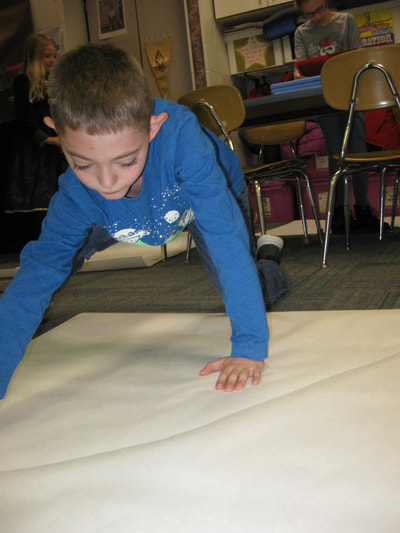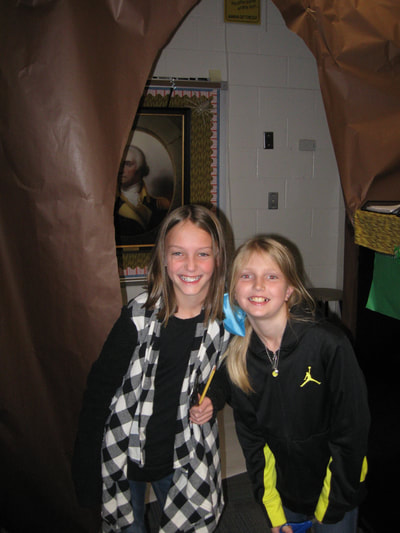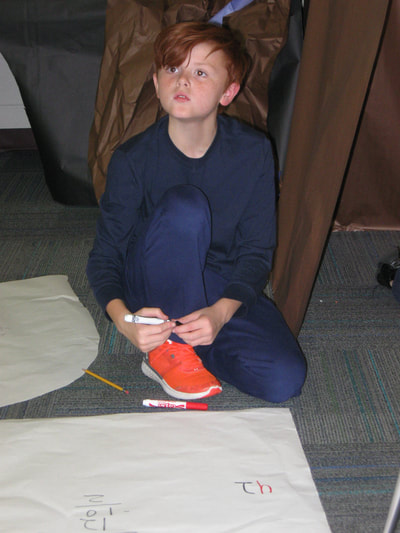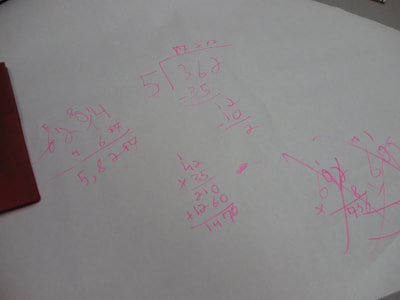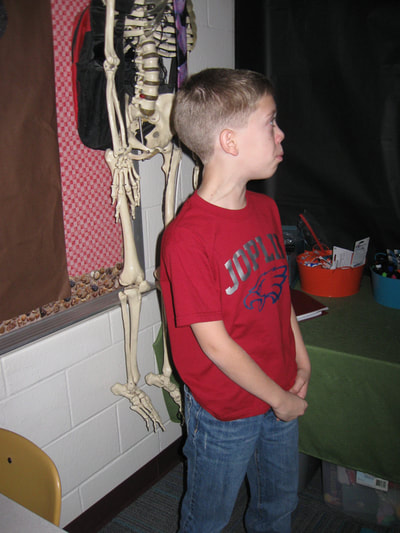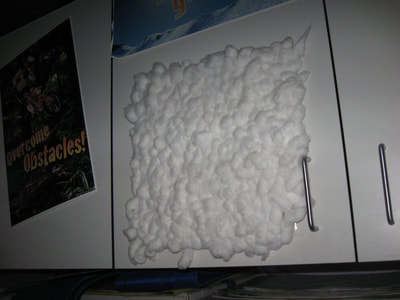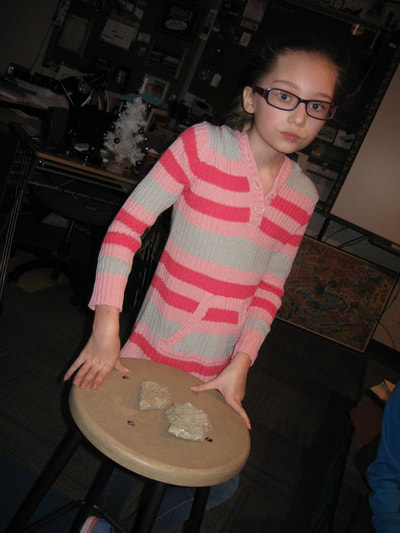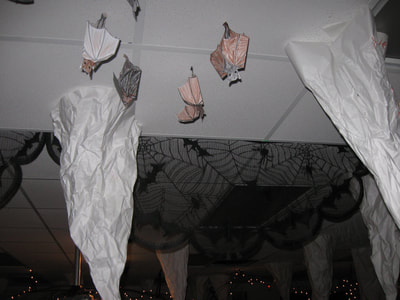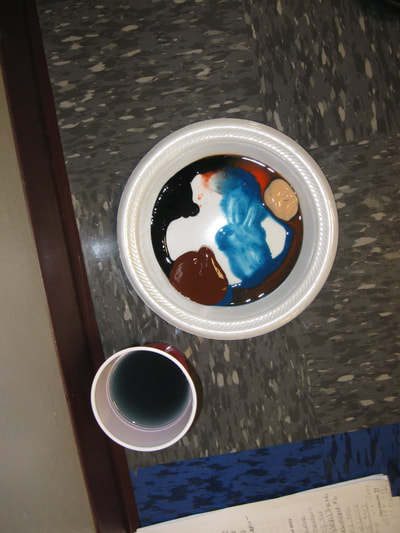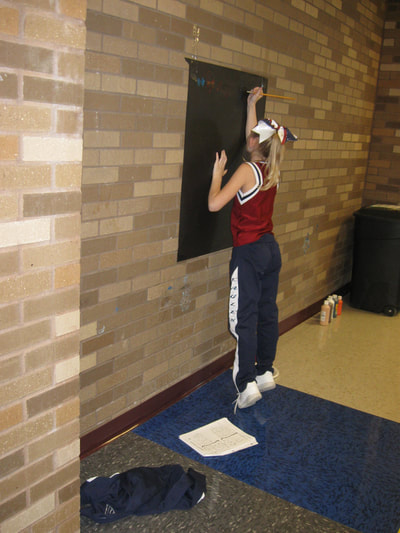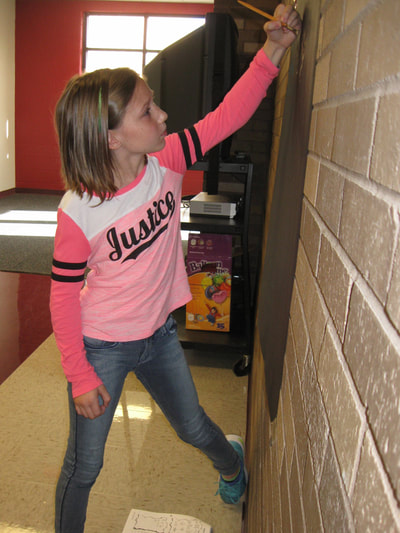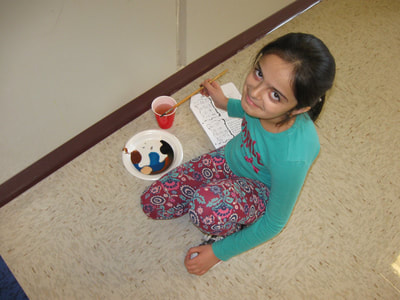| | Students are often called upon to read "chorally". That is, they read together simultaneously as a group. Repeating this practice assists young readers with reading fluency - the speed, accuracy, and inflection of oral reading. Why not, since it's called "choral" reading anyway, actually read the chorus of a song? |
|
0 Comments
Life in the 18th Century (the 1700s) was a bit different from our life in the 21st Century. Some work that existed then no longer exists for us. Other work might have been more difficult. At the same time, this type of hands-on, physical work might have also been more fulfilling.
Life in the 18th Century (the 1700s) was a bit different from our life in the 21st Century. Some work that existed then no longer exists for us. Other work might have been more difficult. At the same time, this type of hands-on, physical work might have also been more fulfilling.
Nobody ever said it would be easy. No one ever said your life would be without failure. How you handle those failures makes a big difference. Take a little time to watch this video: Now for some questions:
Life in the 18th Century (the 1700s) was a bit different from our life in the 21st Century. Some work that existed then no longer exists for us. Other work might have been more difficult. At the same time, this type of hands-on, physical work might have also been more fulfilling.
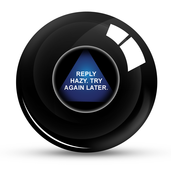 Sometimes we talk in platitudes. Sometimes we think in dreams. We only want to believe in a bright future. An idealized vision for our students. I've certainly been guilty of all of this and probably a whole lot more. I confess. Occasionally, we all need humility and a dose of reality. Teachers, we entered our profession to make a positive difference in the word. We try every day to make that happen. But as much as we envision perfection in our classroom families, we fail. It's inevitable. Some might tell us, You can't save 'em all. I don't know if that's true or not. One of my college professors, in teaching Classroom Management, all those years ago, told our class, "Even the Master Teacher lost one of His twelve." I guess that means that if I have 24 students and only lose two, I can count myself on equal ground with Jesus. Education in general has been through some strange movements in the last 20 years - initiatives to encourage a 100% success rate. We went through times when teachers were blamed for every student failure. Little to no regard was given to the actual antecedents for the failures. But when one of our own fails - even when we are resoundingly not at fault - we still face ourselves in the mirror. What did I do wrong? What should I have done differently? And then...we try to solve the situation retroactively. We might even resort to blaming someone else. Years ago, a girl in my class gave me a present for Christmas. It was wrapped in wrinkled, used birthday wrapping paper. Blue. Clearly the gift was spherical, confirmed upon my unwrapping it. Inside was a worn Magic 8 Ball. The thing had been through the wringer. The words inside the window were washed out, almost to the point of being illegible. I took her present to mean something - that she no longer needed to consult the "decision-making" toy, that now she could solve her own problems, that I had taught her some important life skills. There's something idealistic about that story. Just about every teacher who has been in the profession for a while has experienced tragedy through his/her students. A sibling passes away. Parents divorce. Someone gets hurt. A brother gets killed in an accident. A parent is arrested. A student gets abducted. This week, one graduate of our class lost his older brother. The family, of course, is devastated, and no amount of sympathy can mend their hearts. They will forever remember their son's and brother's life and influence, his smile and his demeanor. Another Hoggatteer graduate has now been arrested in an alleged knife attack on some people right here in our own community. And we ask, Why? Why is an innocent life lost? Why does another take a wrong turn in life? There is nothing that stops nature, but in the latter case, choices were made that are beyond the fourth grade teacher. I could have kept up with that child in the middle school and high school years. Some other teacher should have picked up the ball and run with it, connecting with the child, loving him, and proving to him that he could be something greater. His trajectory could have been tweaked. It still could be, I suppose. We spend a year loving a child, showing him/her that somebody cares. We spend a year poring over our students, emptying ourselves into them, giving them our best. And then the tragedy happens. Hatred rears its ugly head. People are hospitalized. I've heard that if you pray for patience, God will grant it to you - by giving you circumstances in which you must be patient. The same must be true of humility, as well. Pray for humility, and God will arrange circumstances to humble you. I can't change the circumstances for a child who has lost his best friend, his brother, or his pet. I can't go back in time and deflect bullets or dull knives. I am a teacher. A human. A human teacher. A teacher of humans. I cannot change the past, and I cannot foretell the future. I must do what I can while I can - living and acting in the present to the best of my ability. Sometimes we speak in platitudes...but perhaps that's how we encourage ourselves to keep going. Life in the 18th Century (the 1700s) was a bit different from our life in the 21st Century. Some work that existed then no longer exists for us. Other work might have been more difficult. At the same time, this type of hands-on, physical work might have also been more fulfilling.
The final touch for the cave is the creation of our stalagmites - the formations that "grow" from the floor of the cave. The stalagmites are a little tricky, as are the tables and chairs that do not actually belong in the cave. In our case, the tables will be upended and the legs will become the foundation for the stalagmites we made. Not ones to waste paper, before we gave our stalagmites their dimension, we had to do a little math review on them.
From start to finish, putting paint on the wall can really spruce up a room. That's no different for a cave.
When we talked about Native Americans, students created their own pictograph stories. They were simple and succinct. The four that stood out as neat and organized were peer-selected to be translated to our cave wall. Life in the 18th Century (the 1700s) was a bit different from our life in the 21st Century. Some work that existed then no longer exists for us. Other work might have been more difficult. At the same time, this type of hands-on, physical work might have also been more fulfilling.
This one just happens to help us remember a bit of American history.
Life in the 18th Century (the 1700s) was a bit different from our life in the 21st Century. Some work that existed then no longer exists for us. Other work might have been more difficult. At the same time, this type of hands-on, physical work might have also been more fulfilling.
Earlier this week, a substitute teacher stopped me in the hallway to tell me this: I like having your class. They are self-propelled. That's a very telling description. I keep repeating to students that they should be doing more and more of the work, and I should be doing less and less. If a principal enters our class, I would rather s/he see students actively engaged than me lecturing.
Self-propelled may be just the term to describe what I want my class to be - especially when a substitute takes over. I like the idea that my class can work independently, relieving much of the substitute's responsibilities. Not only will the work being completed be more of the style that I would like students to complete, but the substitute is freer to monitor for difficult behaviors and students who need more attention academically. Life in the 18th Century (the 1700s) was a bit different from our life in the 21st Century. Some work that existed then no longer exists for us. Other work might have been more difficult. At the same time, this type of hands-on, physical work might have also been more fulfilling.
|
AnthemThe Hoggatteer Revolution
is an extensive, award-winning, inimitable, digital platform for Encouraging and Developing the Arts, Sciences, and honest Christianity in the beautiful, friendly LAND OF THE FREE AND THE HOME OF THE BRAVE This site is described as
"a fantastic site... chockablock full of interesting ideas, hilarious anecdotes, and useful resources." 
...to like, bookmark, pin,
tweet, and share about the site... and check in regularly for new material, posted often before DAWN'S EARLY LIGHT! History in ResidenceElementary Schools: Bring Mr. Hoggatt into your classroom for a week of engaging and rigorous history programming with your students. LEARN MORE BUILDING BETTER
|

